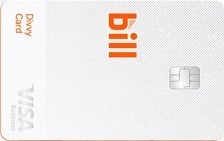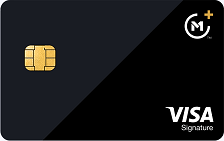Filter Options
×-
-
Unselect all
-
Unselect all
-
Unselect all

Showing 26 Cards
Sort By Column Name:
Upgrade Select Visa®
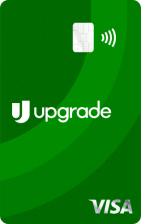
Upgrade Select Visa®
- 21.96% to 29.99% variable based on creditworthiness and the Prime Rate Regular Purchase APR
- 21.96% to 29.99% variable based on creditworthiness and the Prime Rate Balance Transfer APR
At a Glance
The Upgrade Select Visa® combines the best of the regular Upgrade Card for those looking to establish a strong credit history with unsecured credit for the first time. Cardholders enjoy a sensible welcome bonus for a modest $39 annual fee.
- Best Benefits
- Rates & Fees
- Why Should You Apply?
- $200 bonus after opening a Rewards Checking Preferred account and making 3 debit card transactions*
- Combine the flexibility of a card with the predictability of a personal loan
- Shop smarter with Upgrade Shopping! Get exclusive savings at stores, restaurants, and more
- See if you qualify in seconds with no impact to your credit score
- No touch payments with contactless technology built in
- Mobile app to access your account anytime, anywhere
- Use your card anywhere Visa is accepted
- Relax knowing that you are protected in case of unauthorized transactions with Visa’s Zero Liability Policy
- Regular Purchase APR: 21.96% to 29.99% variable based on creditworthiness and the Prime Rate
- Balance Transfer APR: 21.96% to 29.99% variable based on creditworthiness and the Prime Rate
- Balance Transfer Transaction Fee: Up to 5%
- Annual Fee: $39
- Foreign Transaction Fee: Up to 5%
- Late Payment Penalty Fee: May apply
- You struggle to pay off your credit card balances
- You want a structured repayment plan
- You can reliably pay off your statement balances and establish a strong credit history
- You have a desire to get debt-free quickly
- You hate penalty or other hidden fees
Self Visa® Credit Card

Self Visa® Credit Card
- 29.24% (Variable) Regular Purchase APR
At a Glance
The Self Visa® Credit Card is a secured credit card that pairs with an existing Self Credit Builder Account. The card has no formal approval process. Instead, hopeful consumers simply need to open a Self account and save over $100 to fund the secured Visa account.
- Best Benefits
- Rates & Fees
- Why Should You Apply?
-
Apply Now: Intro No Annual Fee with the secured Self Visa® Credit Card^ • If you have an active Credit Builder Account, $100 or more in savings progress and satisfying income requirements you may be eligible to receive the secured Self Visa® Credit Card*, without a hard credit check. Criteria subject to change. • Build credit and savings at the same time. • Start with a Credit Builder Account* that reports monthly payments to all 3 major credit bureaus. • At the end of your plan, unlock the savings you built - minus interest and fees. • The secured Self Visa® Credit Card is accepted at millions of locations in the U.S. *Credit Builder Accounts & Certificates of Deposit made/held by Lead Bank, Sunrise Banks, N.A., First Century Bank, N.A., each Member FDIC. Subject to credit approval. The secured Self Visa® Credit Card is issued by Lead Bank or First Century Bank, N.A., each Member FDIC. See Self.inc for details. Subject to ID Verification. Individual borrowers must be a U.S. citizen or permanent resident and at least 18 years old. Valid bank account and Social Security Number are required. All loans are subject to consumer report review and approval. The Secured Self Visa® Credit Card requires an active Self Credit Builder Account and qualification based on other eligibility criteria including income & expense requirements. Criteria subject to change.
^$0 annual fee for the first year only, $25 annual fee thereafter. Variable APR of 28.24%. Offer valid for new customers only.
- Regular Purchase APR: 29.24% (Variable)
- Annual Fee: $25
- Late Payment Penalty Fee: Up to $15
- Return Payment Penalty Fee: Up to $15
- You're serious about raising your credit score
- You already have a Self Credit Builder Account
- You don’t mind the card's $25 annual fee
- You plan to pay your card balance in full every month
SoFi Credit Card
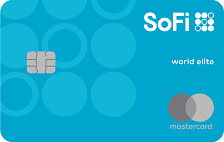
SoFi Credit Card
- 17.99% to 29.99% variable based on creditworthiness and the Prime Rate Regular Purchase APR
- 17.99% to 29.99% variable based on creditworthiness and the Prime Rate Balance Transfer APR
- 31.99% variable based on the Prime Rate Cash Advance APR
At a Glance
The SoFi Credit Card is a cash back rewards card from fintech company, SoFi. The card, which features no annual fee and no foreign transaction fees, is designed to help consumers pay down debt quickly and effectively.
- Best Benefits
- Rates & Fees
- Why Should You Apply?
- Earn 1% cash back on all eligible purchases. When you redeem it to pay down eligible debt, save, or invest with SoFi, you'll earn an additional 1% cash back
- Get a 1% lower APR when you make 12 on-time payments
- No annual fee
- Earn additional rewards when you spend with Lyft, ShopRunner, and Boxed
- Regular Purchase APR: 17.99% to 29.99% variable based on creditworthiness and the Prime Rate
- Balance Transfer APR: 17.99% to 29.99% variable based on creditworthiness and the Prime Rate
- Balance Transfer Transaction Fee: Either $10 or 5% of the amount of each transfer, whichever is greater
- Cash Advance APR: 31.99% variable based on the Prime Rate
- Cash Advance Transaction Fee: Either $10 or 5% of the amount of each cash advance, whichever is greater
- Late Payment Penalty Fee: Up to $39
- Return Payment Penalty Fee: Up to $39
- You're an existing SoFi customer or are planning to become one
- You have debts you want to pay down at a reduced rate
- You have the desire to earn a lower rate with on-time payments
- You don’t want to pay an annual fee or foreign transfer fee
TAP Miles&Go American Express®

TAP Miles&Go American Express®
- 21.24% to 28.24% variable based on creditworthiness and the Prime Rate Regular Purchase APR
At a Glance
The TAP Miles&Go American Express® credit card is the ideal travel companion for anyone who want premium travel perks but hate paying a steep annual fee of hundreds of dollars. The card, from Cardless, charges $79 per year but grants perks like lounge access, preferred boarding, and more.
- Best Benefits
- Rates & Fees
- Why Should You Apply?
- No foreign transaction fees
- Earn 60,000 miles after spending $2,500 in purchases in the first three months
- Earn 3X miles on TAP Air Portugal purchases
- Earn 2X miles on dining, plus rideshares, taxis, and public transit
- Earn 1X miles on all other purchases
- Two complimentary TAP lounge passes each year
- Preferred boarding on TAP-operated flights
- Regular Purchase APR: 21.24% to 28.24% variable based on creditworthiness and the Prime Rate
- Annual Fee: $79
- Late Payment Penalty Fee: Up to $30
- Return Payment Penalty Fee: Up to $30
- You travel to Portugal, Europe, or other similar destinations often
- You prefer to fly with TAP Air Portugal or other Star Alliance airlines
- You want access to premium perks like airport lounges and upgrades
- You plan to spend at least $2,500 in the first three months
GO2bank Secured Visa Credit Card
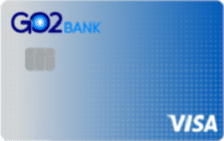
GO2bank Secured Visa Credit Card
- 22.99% Regular Purchase APR
- 26.99% Cash Advance APR
At a Glance
The GO2bank Secured Visa Credit Card is a basic secured credit card that offers decent value for its no annual fee. The card features a low deposit requirement, fixed APR, and the Visa payment network’s purchasing power.
- Best Benefits
- Rates & Fees
- Why Should You Apply?
- No annual fee
- No credit check to apply
- Fixed-rate APR on purchases
- Regular Purchase APR: 22.99%
- Cash Advance APR: 26.99%
- Cash Advance Transaction Fee: Either $10 or 5% of the amount of each cash advance, whichever is greater
- Foreign Transaction Fee: 3% of the transaction amount in U.S. dollars
- Late Payment Penalty Fee: Up to $39
- Return Payment Penalty Fee: Up to $20
- Minimum Deposit Required: $100
- You have limited credit history but want to establish good credit habits
- You don’t have the money for a significant security deposit
- You prefer mobile banking over branches
- You do't want to pay an annual fee
You've viewed 5 of 26 credit cards
What Is “Fintech?”
Fintech refers to digital technologies and financial services. The term “Fintech” is short for financial technology and encompasses a range of new financial products to disrupt traditional banks and banking services.
The roots of fintech can be traced back to the 1950s when the first credit cards were introduced. The industry continued to evolve in the following decades, with the introduction of ATMs in the 1960s and electronic stock trading systems in the 1970s. However, in the digital boom and the rise of the World Wide Web in the 1990s and 2000s, fintech became more closely associated.
Fintech’s impact on banking growth is not a recent phenomenon. According to the US Chamber of Commerce, fintech has been directly responsible for the exponential increase in banks over the past three-quarters of a century.
In 1950, there were only approximately 13,500 banks in the United States. Thanks to technological advancements in the financial sector, that number rose to over 83,000 by 2008. Today, neobanks and challenger banks are pushing the boundaries of fintech even further, leading to a new banking revolution.
Examples of Fintech
Fintech is a broad term that can be difficult for many Americans to understand. Fortunately, there are plenty of common examples of fintech that are essential components of our everyday lives.
- Crowdfunding: Crowdfunding services, such as GoFundMe, Kickstarter, and others, are redefining how companies raise funds. These unique fundraising platforms also open up the funding market to charities, groups, and even individuals. They offer lower costs, ease of advertisement, and streamlining of the entire process.
- Mobile Wallets: Mobile wallets, such as Apple Pay, Samsung Pay, and Google Pay, are familiar to everyone. They make online payments and contactless payments more safe and secure. Services like Venmo, PayPal, and Square are also examples of fintech mobile wallets. They allow merchants to make purchases more straightforward for customers without cash and enable friends to split bills or lend money to family or friends.
- Credit Monitoring Apps: Credit monitoring apps, like Experian and Credit Karma, let consumers monitor their FICO or VantageScore credit scores, track their financial progress, and match their credit profile with potential credit card offers.
- Stock Trading Apps: While fintech was crucial in opening up the stock market to Americans in the 1950s and 1960s, mobile stock apps like Robinhood redefine how Americans trade in the 21st century. Mobile stock trading apps, including Acorns, allow investors to trade stocks from anywhere instead of visiting their stockbroker.
What Is a Fintech Credit Card?
A fintech credit card is offered by a financial technology (fintech) company, which typically operates online or through mobile apps. These credit cards often have innovative features and services that differentiate them from traditional bank-issued credit cards.
Types of Fintech Credit Cards
Fintech credit cards come in two distinct varieties.
Traditional Banking Partner or Payment Network
The first type of fintech credit card is issued with a traditional banking partner or payment network. These cards prioritize unique rewards structures or features while maintaining a credit card’s classic look and feel.
Neobank
The second type of fintech credit card is issued through what is known as a neobank. These credit cards bypass established banking partners and seek a new approach towards the financial aspect of the credit card experience.
Benefits of Fintech Credit Cards:
- Innovative Features: Fintech credit cards often introduce new features and technologies to improve the customer experience.
- Personalized Services: By leveraging data analytics, fintech credit cards can offer personalized services tailored to individual spending habits.
- Convenience: Their digital nature and user-friendly interfaces make fintech credit cards convenient for tech-savvy consumers.
Limitations of Fintech Cards:
- Brand Recognition: Fintech companies may face challenges in establishing the same level of brand recognition and trust as traditional banks.
- Regulatory Compliance: Adhering to financial regulations and ensuring data security can be complex for fintech companies entering the credit card market.
Key Features of Fintech Cards
- Digital-first Approach: Fintech credit cards are often designed to be managed entirely through digital platforms, offering a seamless and user-friendly experience.
- Innovative Rewards and Benefits: Fintech credit cards may offer unique rewards programs, cashback offers, or other perks designed to appeal to specific customer segments.
- Data-Driven Insights: Some fintech credit cards leverage advanced data analytics to give customers personalized spending insights and financial management tools.
- Flexible and Transparent Terms: Fintech credit cards may simplify the terms and conditions associated with credit card usage, offering more transparency and flexibility.
- Integration with Fintech Ecosystem: These credit cards may be integrated with other fintech services, such as budgeting apps, investment platforms, or digital wallets.
Conclusion
With their modern and innovative approach, Fintech credit cards are revolutionizing the credit card industry. By harnessing the power of technology, these cards offer consumers a range of enhanced services and benefits, making them a popular choice in today’s digital age. With their user-friendly interfaces and seamless integration with mobile apps, fintech credit cards are transforming the way people manage their finances.
These cards provide a convenient and efficient way to make payments, track expenses, and access rewards and discounts. Additionally, fintech credit cards often come with advanced security features, such as biometric authentication and real-time fraud detection, ensuring that consumers can use their cards with peace of mind. With the rise of fintech companies and the increasing demand for digital financial solutions, it is clear that fintech credit cards are here to stay. As technology evolves, we can expect even more exciting developments in this space, further enhancing the benefits and services offered by fintech credit cards.
Check out more
Fintech Credit Cards
Editorial Disclosure – The opinions expressed on BestCards.com's reviews, articles, and all other content on or relating to the website are solely those of the content’s author(s). These opinions do not reflect those of any card issuer or financial institution, and editorial content on our site has not been reviewed or approved by these entities unless noted otherwise. Further, BestCards.com lists credit card offers that are frequently updated with information believed to be accurate to the best of our team's knowledge. However, please review the information provided directly by the credit card issuer or related financial institution for full details.



